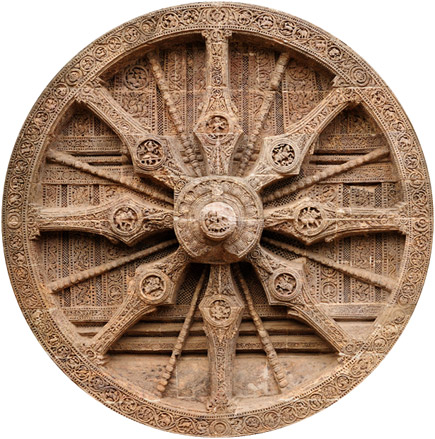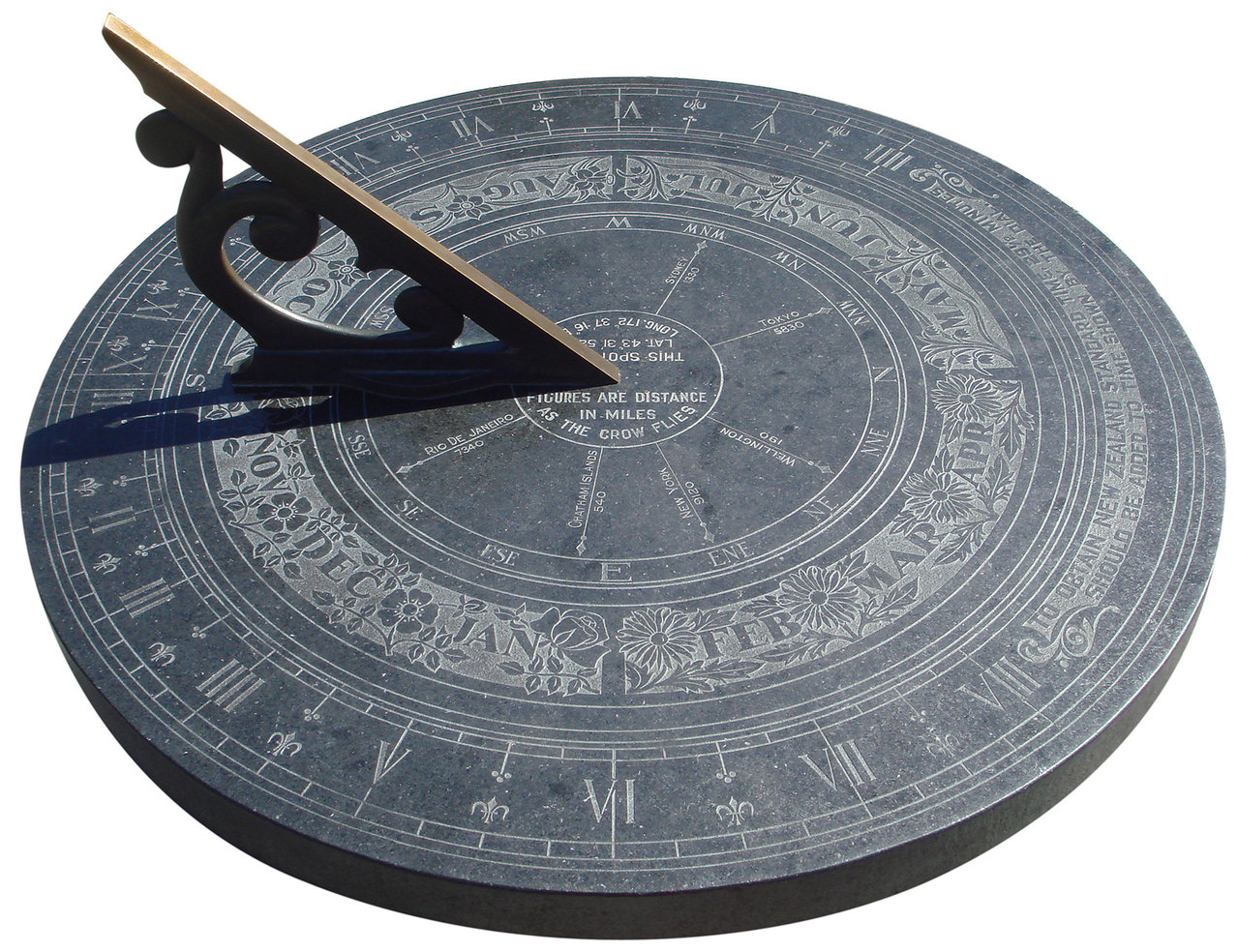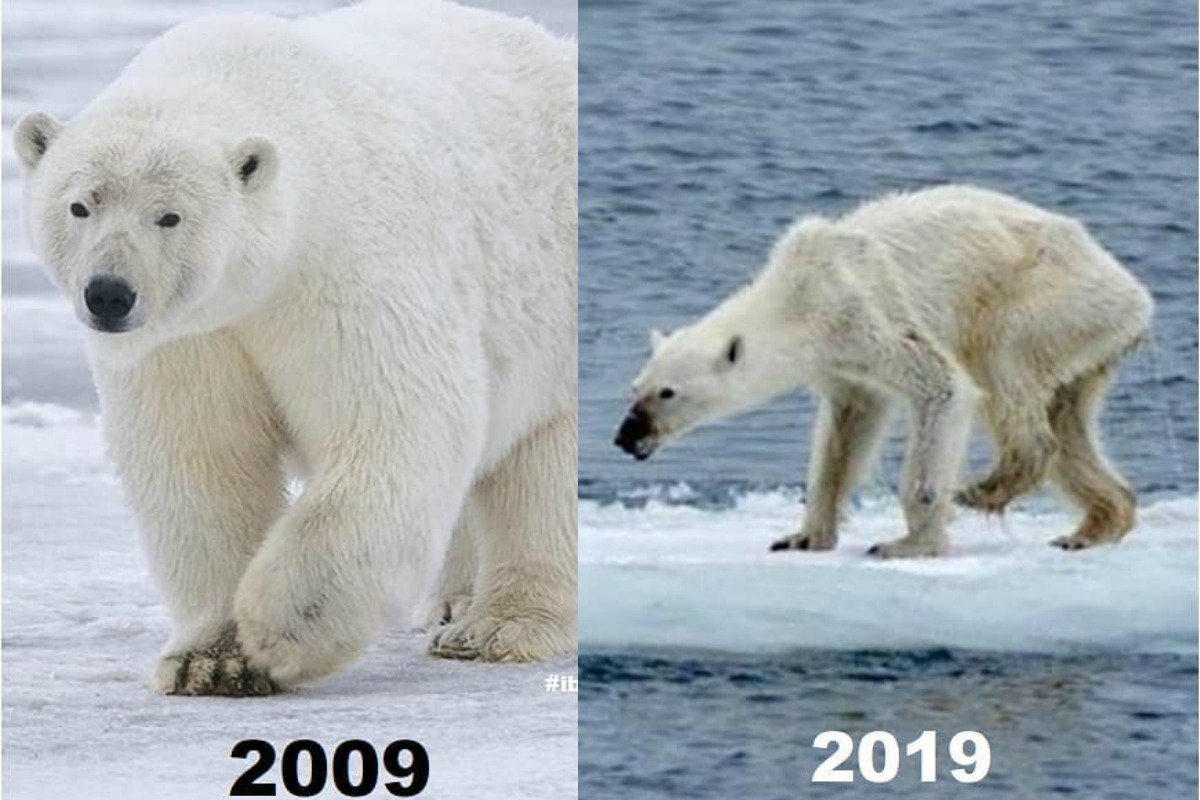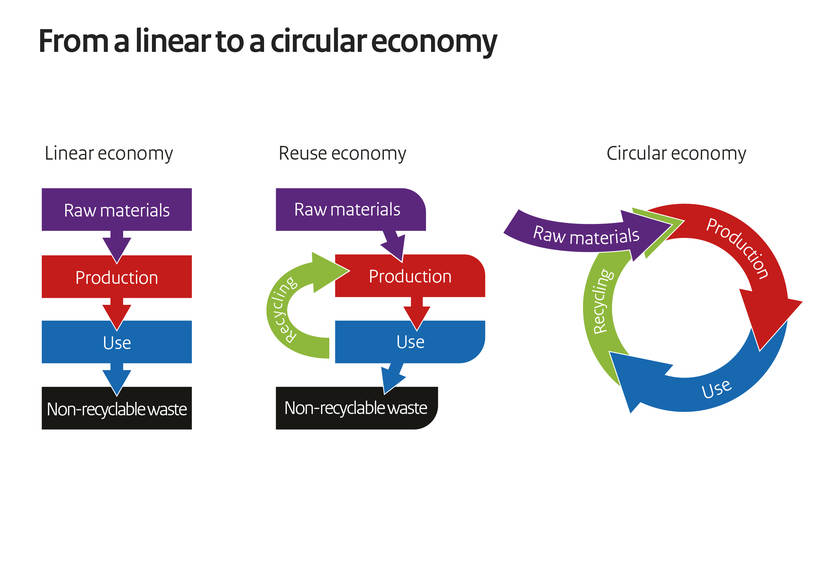
|
|
Time is visualised as a chakra - a wheel - in several philosophies
Source: www.thekonark.in
|
|
Time passes.
Where to?
The idea that we are running out of time is a fundamental principle that the entire debate around sustainability is based on. 2020 was supposed to be a turning point, in whether we can manage to turn around the disaster we have created or whether the human species was doomed to self destruct. 2020 is only a year away.
But this linear one track journey to destruction is based on a particular concept of time that has little to say about what comes after. On the contrary, Hindu philosophy and thought was based on a cyclic concept of time. It believed that phenomena repeated themselves endlessly and just as everything else in Nature, that time too is a circular cyclic rhythmic movement. This issue of our newsletter explores an alternate view of time and hence of our journey towards sustainability.
|
|
|
The quantification of time in the Hindu thinking was based on the relationship between the sun and the moon. It started from measures as tiny as ≈ 0.031 µs ( Truti) to as vast as 313,528,320,000,000 human years which forms one Maha Kalpa. In both of these extremes, it is evident that these measures of time were not 'human' i.e. they were not based on the experiences possible through a human body. Neither were they concerned or defined by a human lifespan.
|
|

|
|
Source: freeimages.com
|
|
The basic tenet of the concept of Kaala is that it is a repetitive phenomenon. Any linearity we experience at a human level is placed within the larger cyclic rhythm. In this worldview, we are not simply headed towards ' the end of the world' as we know it, but simultaneously an entire new beginning. The Sanskrit word Kaala represents both time and death.
The doomsday scenario that most environmental debate is based upon, leads us to believe that we are heading towards complete calamity. This idea is not far fetched as we watch species disappear and our natural resources deplete or become polluted beyond repair.
Pulitzer Prize winning author Michael Chabon in an article wrote...
If you ask my eight-year-old about the Future, he pretty much thinks the world is going to end, and that’s it. Most likely global warming, he says—floods, storms, desertification—but the possibility of viral pandemic, meteor impact, or some kind of nuclear exchange is not alien to his view of the days to come. Maybe not tomorrow, or a year from now. The kid is more than capable of generating a full head of optimistic steam about next week, next vacation, his tenth birthday. It’s only the world a hundred years on that leaves his hopes a blank. My son seems to take the end of everything, of all human endeavor and creation, for granted. He sees himself as living on the last page, if not in the last paragraph, of a long, strange and bewildering book.
In Hindu thought, the concept of Pralaya also exists - the word pra-laya comes from Sanskrit meaning 'dissolution' or by extension 'reabsorption, destruction, annihilation or death'. The scriptures go on to describe different types of pralaya - from an extinction of creatures to a complete non existence. However, the diiference between this world view and that of the environmentalists is that pralaya is not a new phenomenon - it has happened before and is expected to happen again. The pralaya is not something that can be prevented nor avoided. And that post pralaya , emerges a whole new phase of creativity and life. As the play of existence starts over..
How would such a world view affect our dismay at our degrading natural environment? Would it make us fatalistic or simply detached?
|
|
|
Time in the dialogue on Sustainability
|
|
|
Sustainable development is defined as the development that meets the needs of the present without compromising the ability of future generations to meet their own needs. How long into the future is this definition looking? One measure talks about seven generations into the future. Actions like planting a tree do not expect the results to appear immediately as they are meant to offer future results.
However, unless we are able to think of a timeline beyond our own human lifespans we will be unable to meet the goals of sustainability.
|
|

|
|
Facebook users posted heartwrenching images of how the environment had degraded within a short span of ten years in response to the Ten Year Challenge launched by Facebook. Source: https://www.mamamia.com.au
|
|
Why have we stopped thinking long term? Why dont we feel responsible for our future generations any more? Is it because of the speed driven technologies, is it because the result oriented market driven economies or because of the overload of personal multi tasking?
The Long Now project is one such group that aims to create long term thinking in modern generations. In the words of Daniel Hill, a computer scientist who is a member of the Long Now project
"When I was a child, people used to talk about what would happen by the year 02000. For the next thirty years they kept talking about what would happen by the year 02000, and now no one mentions a future date at all. The future has been shrinking by one year per year for my entire life. I think it is time for us to start a long-term project that gets people thinking past the mental barrier of an ever-shortening future."
Source: http://longnow.org/about/
|
|
|
Time is a result of consciousness
|
|
|
I once watched a video of Bruce Lee playing table tennis against two opponents. In the same seconds that the two scrambled to catch the ball, Lee was able to orchestrate several movements without once losing his focus. It seemed like for him those seconds and minutes were much longer than for his opponents.
Our consciousness of the passing of time seems to influence our experience of it and what we can achieve with it. Moments of unconsciousness pass quickly , are almost lost.
On the other hand , when acutely conscious, our brains and bodies are able to process much more information in the same span of time. This idea of time as being a subjective internal phenomenon is opposed to time as an objective external phenomenon based on the rhythms of Nature. The two concepts of time have radically different approaches to the way we operate in the world and our predictions for the future we anticipate.
|
|
|
Presence and Sustainablity
|
|
|
Ultimately the choice of action in the present moment is driven by how conscious we are in this moment. While we may be aware and informed about the possible future consequences of our actions, our behaviour in the present is driven by whether we can stay conscious or not.
The world view we subscribe to, may or may not give us the tools to stay conscious. A cyclic view that encourages people to think of 'closing the loop' in all matters is more likely to foster responsible behaviour. The idea of a circular economy, 'cradle to cradle' thinking in design and the understanding that 'what goes around comes around' all stem from a cyclic perspective.
|
|

|
|
Source: https://www.government.nl/
|
|
|
It would seem then, that the vision we need to develop, is for the day after the apocalypse that the environment seems headed towards. While we struggle to explain the reality of climate change to unbelieving leaders, there are other movements small and big, that are accepting and preparing for the consequences of climate change. Our education systems need to give younger generations the tools to face natural disasters and think creatively and consciously for the future they would like to create. And finally, with the knowledge that this may not be the first time that the planet has faced pralaya, we need to develop an inner consciousness that is aligned with the movements of Nature and chooses the right action in the present moment.
|
|
|
|